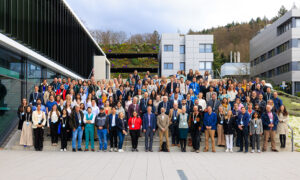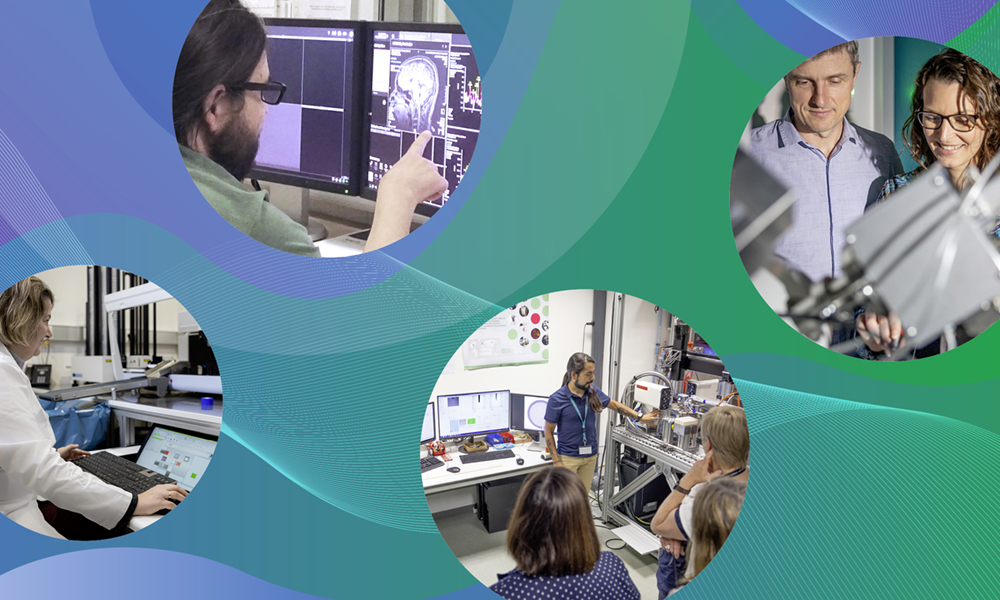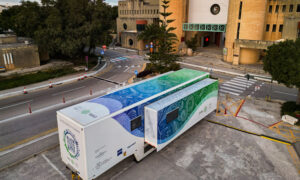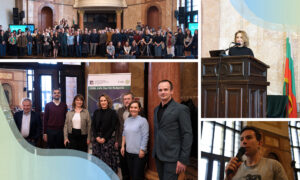
Bringing scientific services together ‘2RISE’
EMBL-led infrastructure management training provides forum to exchange information and discuss technology access for members of Health + Life Science Alliance Heidelberg Mannheim

Cutting-edge tools are made even better when they are shared.
This idea is at the heart of a pilot programme of four training and networking workshops that EMBL is organising with partners from the Health + Life Science Alliance Heidelberg Mannheim. The programme will allow scientists working in core facilities and other research infrastructures to share information about their most high-tech services, operation management strategies, and challenges to providing facility services to all Alliance researchers. The first of these workshops will be held on 16 October at EMBL’s Heidelberg campus, focusing on best practices in user support, followed by events at Heidelberg University, Medical Faculty Mannheim, and the DKFZ. Registration for participation in all four events has just opened.
Made possible through a Health + Life Science Alliance Heidelberg Mannheim Explore! Tech grant, the four-day 2RISE programme gets its inspiration from EMBL’s unique ARISE multidisciplinary fellowships, part of its infrastructure management training programme. Organisers envision 2RISE expanding on ARISE to more systematically exchange expertise in a peer-to-peer manner that fosters diversity and greater use of cutting-edge technologies unique to specific alliance members.
“We have 50 core facilities in the region,” said Tanja Ninkovic, EMBL ARISE Programme Manager and workshop coordinator. “And while there may be some duplication of services in these facilities, several are distinctly unique, but not necessarily accessible to others for a variety of reasons. The networking and training that these workshops afford will help to strengthen interaction between the Alliance institution scientists, synergise service provision that makes our collective science more efficient, and truly raise the technical and soft skill level of staff as well as the quality of service within the Alliance.”
Seven of the most prominent scientific research institutions in the Rhine-Neckar region launched the Health + Life Science Alliance Heidelberg Mannheim in September 2022 – EMBL, Heidelberg University, the German Cancer Research Center (DKFZ), the Max Planck Institute for Medical Research, the Central Institute of Mental Health (ZI), and the two university hospitals in Heidelberg and Mannheim.
The four workshops are each centred around a different theme relevant to scientific services. In the first session in October, participants will hear talks and share ideas for best practices in user support. The later workshops address how to expand one’s user base, how to design good user support models, and how to strategically develop a core facility that meets the scientific community’s needs best.
These workshops align with Alliance goals to expand common priorities in health research, bolster life science research, and intensify transfer of technologies and research outputs into industry and society. Additionally, Alliance members intend to lead the way for an internationally competitive hub for biomedical technology and life science discoveries via the inter-institutional approach and with partners from industry.
“While these workshops are only a pilot program, we all feel a need to connect more within the Alliance and to provide research infrastructure scientists a platform for continuous development,” said Rainer Pepperkok, EMBL’s Director of Scientific Core Facilities. “I think they will really lay the groundwork for collaboration that can tangibly improve upon what Alliance research institutions are already doing on their own – something that will draw other researchers to the region as well.”
Ultimately, Ninkovic and others who helped plan this pilot series of workshops envision strengthened regional relations that result in more efficient and effective use of technological strengths while also addressing regional technology gaps collectively that can further advance everyone’s research.
“I’m most excited about bringing people together and opening doors that hadn’t been opened before. It seems surprising, but despite scientists networking globally at all kinds of conferences, we often neglect to interact with those closest to us,” Ninkovic said. “We’ll highlight the importance of infrastructure to research facilities in the region, as we also broaden the knowledge and expertise of everyone involved.”
This work is supported by the Health + Life Science Alliance Heidelberg Mannheim and received state funds approved by the State Parliament of Baden-Württemberg.


